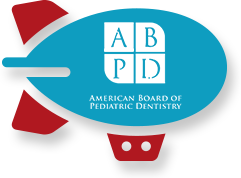These Halloween Candies Can Destroy Teeth
October 11th, 2018
Halloween is an awesome time for families to dress up like their favorite superheroes and explore their neighborhoods together, searching for candy. However, candy contains a lot of sugar and is really unhealthy for teeth. But, among the bad candy, a few Halloween classic candies stand out as truly bad for teeth.
Circus Peanuts
How can a candy named “Circus Peanuts” contain zero actual nuts? Regardless of the lack of nuts, Circus Peanuts are a marshmallow candy that is made almost entirely of sugar. It comes in a bright orange shaped peanut, and is textured like a marshmallow. Circus Peanuts are a sticky candy, and that’s terrible news for teeth. Sticky candy is difficult to remove from teeth, and gives bad bacteria more time to eat away tooth enamel and cause cavities.
Atomic Fireballs
This spicy Halloween favorite is a staple in many candy bowls nationwide, but Atomic Fireballs can harm teeth. Atomic Fireballs are basically spicy jawbreakers, which is a very hard candy. Hard candy comes in nearly every flavor and size imaginable, but chewing hard candy can lead to a cracked tooth. Hard candy also tends to stick around longer than other candy, which exposes teeth to sugar for longer. Extended contact with sugar can lead to more cavities because sugar provides bad bacteria with the energy it needs to destroy enamel.
Candy Corn
This may be a bummer for a lot of Halloween fans, but Candy Corn is actually awful for teeth, and it’s largely due to one ingredient: confectioner’s wax, which is basically waxy sugar. The waxy consistency of confectioners wax makes it difficult for saliva to break down, and also causes it to stick to teeth. As specified above, sugar that sticks to teeth gives cavities the nutrition they need to thrive and worsen.
Avoid the Candy Binge this Halloween
Do your best to limit the amount of candy your child has per day, and be sure that they rinse their mouth out with water, or brush and floss after eating candy to thoroughly remove any sugar or candy particles left behind on their teeth.
If your child begins experiencing tooth pain this Halloween, then schedule an appointment with our office. Have a happy and safe Halloween, and don’t forget to brush!


